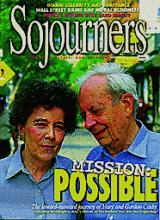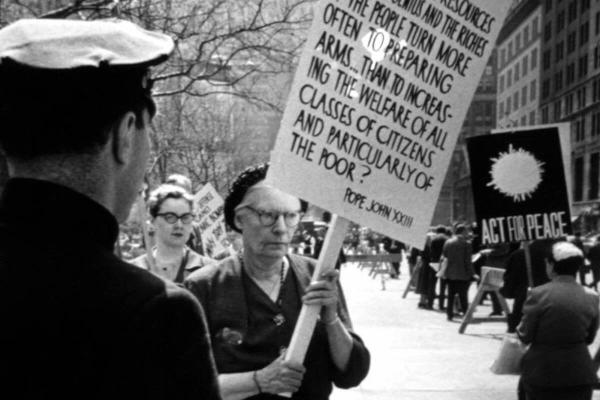November 8 marks the 100th anniversary of the birth of Dorothy Day, uncanonized saint of the homeless. She was also one of America's most inspired complainers. For most of her life she kept saying things aren't the way they should be, and that it would be a far less cruel world if those who go to church cared for the poor half as well as they take care of their Bibles.
The driving force in her life was her intense awareness of beauty. In her mid-20s, trying to explain the religious conversion going on in her own life, she would ask atheist friends, "How can there be no God when there are all these beautiful things?" From age 15 until her death, she found beauty in places and faces that most people are glad to avoid. It started in Chicago after reading Upton Sinclair's novel The Jungle, a story set in an area of stockyards and slaughterhouses of the city's South Side. Sinclair's vivid description of filth in the meat industry so shocked its readers that the book is given credit for congressional passage of tough meat inspection laws, although what Sinclair had hoped for was to stimulate more profound social change. "I aimed at the public's heart," he said, "and by accident hit it in the stomach."
He reached Dorothy's heart. She often strolled the newest addition to her family, her brother John. "I walked for miles, exploring interminable gray streets, fascinating in their dreary sameness, past tavern after tavern, where I envisioned such scenes as the Polish wedding party in Sinclair's story." In the midst of urban desolation, she found "tiny gardens and vegetable patches in the yards." Drab streets were transformed by pungent odors: geranium and tomato plants, garlic, olive oil, roasting coffee, bread and rolls in bakery ovens. "Here," she said, "was enough beauty to satisfy me."
Read the Full Article

